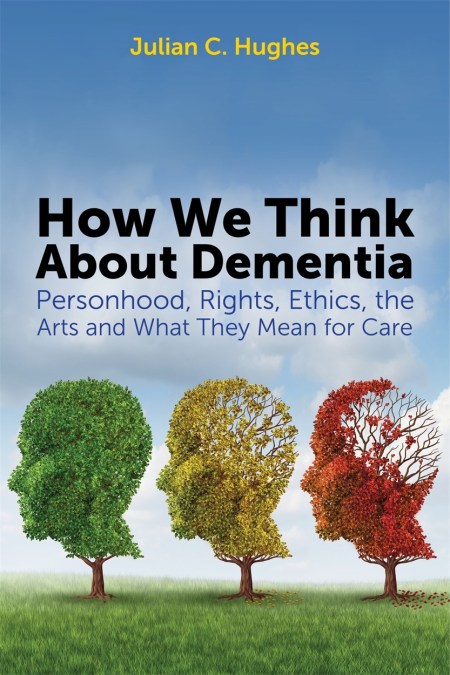How We Think About Dementia
On sale
21st July 2014
Price: £27.99
Exploring concepts of ageing, personhood, capacity, liberty, best interests and the nature and ethics of palliative care, this book will help those in the caring professions to understand and engage with the thoughts and arguments underpinning the experience of dementia and dementia care.
Dementia is associated with ageing: what is the significance of this? People speak about person-centred care, but what is personhood and how can it be maintained? What is capacity, and how is it linked with the way a person with dementia is cared for as a human being? How should we think about the law in relation to the care of older people? Is palliative care the right approach to dementia, and if so what are the consequences of this view? What role can the arts play in ensuring quality of life for people with dementia?
In answering such questions, Julian Hughes brings our attention back to the philosophical and ethical underpinnings of dementia care, shedding new light on the significance and implications for those in the caring professions, academics and researchers, and those living with dementia and their families.
Dementia is associated with ageing: what is the significance of this? People speak about person-centred care, but what is personhood and how can it be maintained? What is capacity, and how is it linked with the way a person with dementia is cared for as a human being? How should we think about the law in relation to the care of older people? Is palliative care the right approach to dementia, and if so what are the consequences of this view? What role can the arts play in ensuring quality of life for people with dementia?
In answering such questions, Julian Hughes brings our attention back to the philosophical and ethical underpinnings of dementia care, shedding new light on the significance and implications for those in the caring professions, academics and researchers, and those living with dementia and their families.
Newsletter Signup
By clicking ‘Sign Up,’ I acknowledge that I have read and agree to Hachette Book Group’s Privacy Policy and Terms of Use
Reviews
In this book, Julian Hughes makes a powerful and compelling case for a revolution in the treatment of people with dementia. He underscores the need to summon immediately the personal and political will to engage people with dementia as people who respond positively to the solicitude and open engagement provided by those deemed healthy. Viewing dementia and ageing in the broad scope of human life, yet without romanticising illness, Hughes challenges professional and lay carers to open their minds and hearts to create what Buber called, “I-Thou” relationships with people diagnosed with dementia, so as to improve the lives of all concerned. He does this on philosophically, ethically, sophisticated grounds as a philosopher, on medically sophisticated grounds as an old age psychiatrist, and on aesthetically sophisticated grounds as a humane, spiritually alive human being. This book will benefit many audiences, including, perhaps most importantly, people with dementia.
Julian Hughes uses a rich combination of science, law, history, ethics and philosophy to illustrate the complex nature of dementia and how we view it. Through a series of fascinating case studies illustrating real life complex scenarios, and with superb clarity of writing, he gently challenges our current approaches to people with dementia – above all emphasising the need to see through the narrow illness to the broader person within. An excellent and stimulating book.

